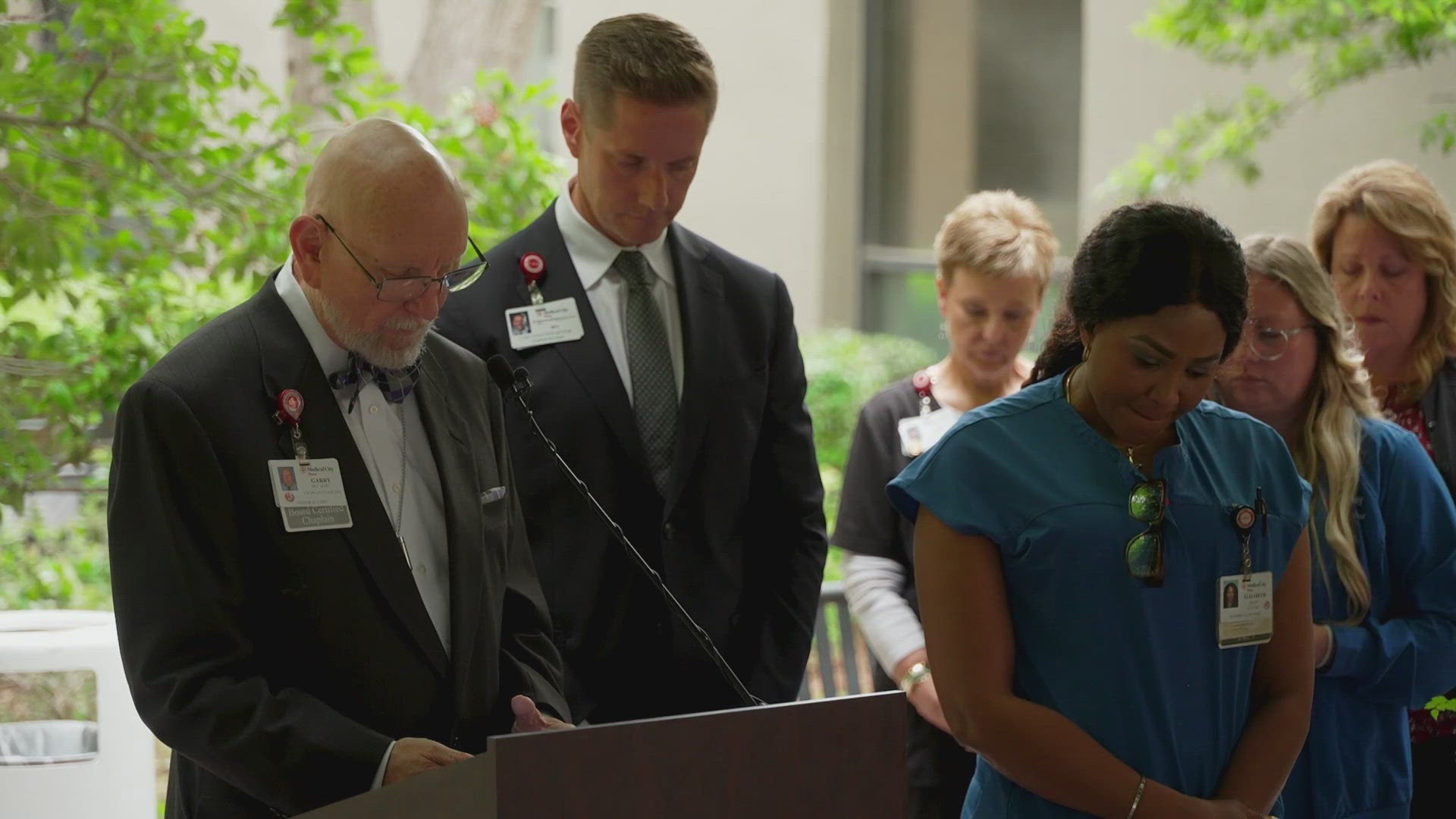ALLEN, Texas — The doctors, nurses, and staff working on the hospital front-lines have a unique perspective on the tragic events of May 6 at the Allen Premium Outlets.
Eight patients were treated at Medical City Healthcare hospitals. Seven were taken to Medical City McKinney, which is a Level II Trauma Center, and one patient was taken to Medical City Plano.
Dr. Samuel Stephenson, an orthopedic trauma surgeon, recalls getting a text to his phone. He had just settled down after working his shift.
"Hey! I need help. There's been a mass shooting event," he paraphrased what the text read from a fellow surgeon. The surgeon who texted him was his colleague Dr. Morgan Collom.
"I started the chat because nobody knew. I wanted to alert people and tell people we need help," said Dr. Collom, a trauma acute care surgeon.
Dr. Collom tells WFAA that thirteen surgeons and many more nurses and staff dropped what they were doing and jumped in to help. Some went to Medical City McKinney and others went to Medical City Plano.
"At first information was coming in sporadically," said Dr. Samuelson. "I was literally running from room to room. It is a beautiful orchestrated chaos," said Dr. Collom.
Despite the sadness and negativity surrounding the tragic event, both were encouraged to see their colleagues jump into action to help their community.
"It really felt like McKinney was a Level 1 [Trauma Center] that day," Dr. Stephenson said.
They helped people like Suneetha Pinnamaneni who was shot in the left arm. In the one year in recovery, she has already endured more than a dozen surgeries.
"I was so scared when the incident happened. I'm also a survivor of the Allen mall shooting," Pinnamaneni said in a video produced by the hospital.
"These are high-velocity rounds so the injuries are devastating," said Dr. Stephenson. The orthopedic surgeon tells WFAA he grew up in Newtown, Connecticut. His small town is now known for the 26 killed in a school shooting.
WFAA asked the doctors about their most vivid memory from that day. For Dr. Collom, it was the lives they could not save.
"Pronouncing someone dead....it was really horrible. It's sad that we live in a country where people should feel safe and don't," she said.
Suneetha is recovering now helping other trauma patients with her story. Dr. Collom, like many others, is still working through what she witnessed from that day.
"For about a month and a half I really mentally struggled," she said.
Between the first responders to the scene and those on the hospital front lines, they felt they had done all they could. They felt they had fulfilled their purpose but also wondered constantly about what else they could have done to prevent any death.
"All I wanted is to feel like I can save one person," said Dr. Stephenson.

